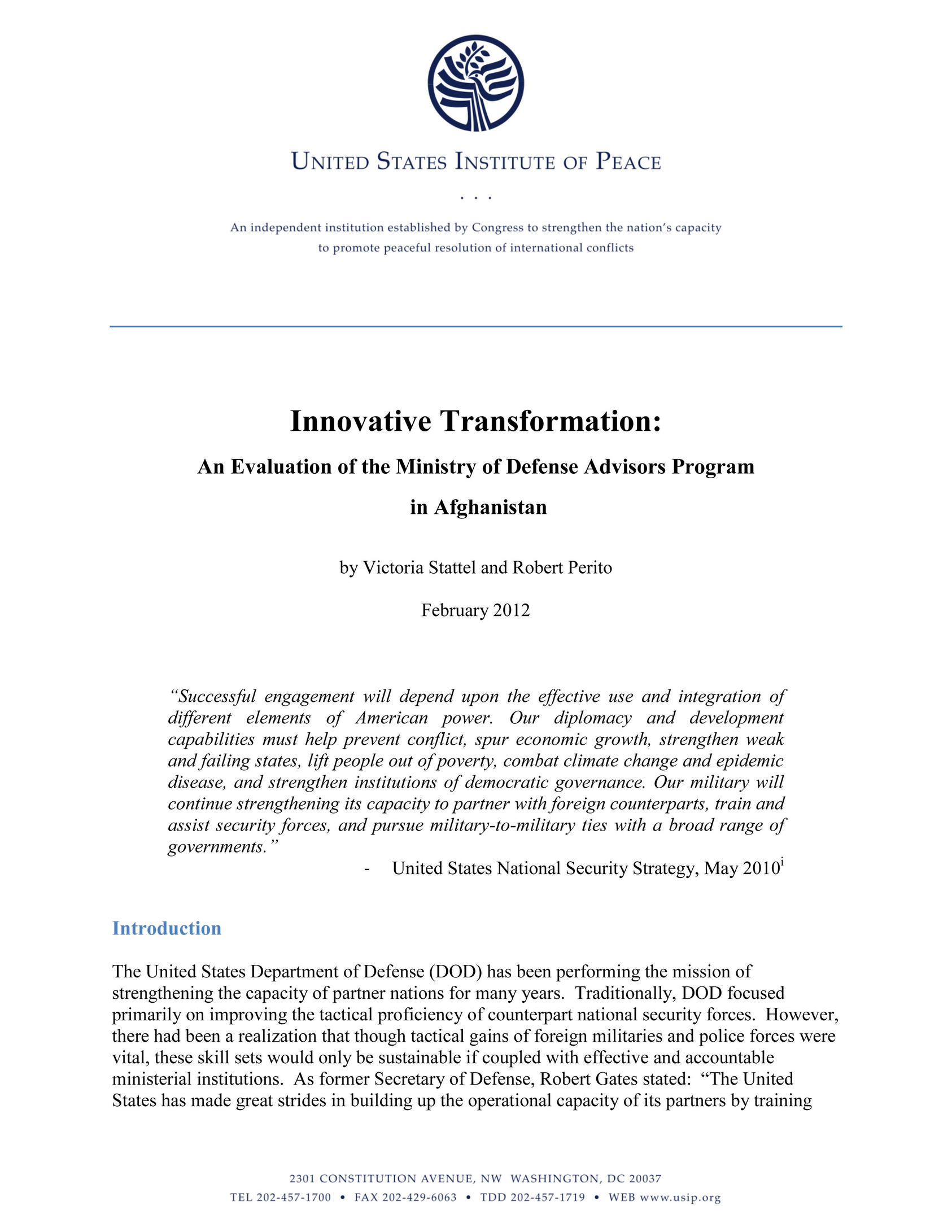Innovative Transformation
This report examines the selection, training, and deployment of MoDA advisors as well as the strengths and shortcomings of the program. It incorporates the insights of returned advisors, MoDA program staff and instructors, and senior U.S. government officials in Washington and members of NATO Training Mission – Afghanistan (NTM-A). It was prepared at the request of the Office of the Secretary of Defense for Partnership Strategy and Stability Operations.

In 2010, the Department of Defense launched the Ministry of Defense Advisors (MoDA) program to provide experienced civilian managers from its staff to advise their counterparts in the defense and interior ministries in Afghanistan. Undertaken with the support of Congress, the MoDA Program was based on the realization that although it was vital to train Afghan soldiers and police, these forces could be sustained only if they were supported by effective ministries.
The MoDA program began with an assessment by the National Defense University’s Center for Complex Operations and the U.S. Institute of Peace (USIP) of lessons learned by American advisors in Afghanistan. The assessment was the basis for a state-of-the art training program in which USIP and other agencies took part. Once deployed, MoDA program advisors won praise for their contributions from Lt. General William Caldwell, the commander of NATO Training Mission-Afghanistan and their Afghan counterparts.
The following report, "Innovative Transformation: An Evaluation of the Ministry of Defense Advisors Program in Afghanistan," examines the selection, training, and deployment of MoDA advisors as well as the strengths and shortcomings of the program. The report was prepared by the Security Sector Governance Center of the U.S. Institute of Peace. It incorporates the insights of returned advisors, MoDA program staff and instructors, and senior U.S. government officials in Washington and members of NATO Training Mission – Afghanistan (NTM-A). This report was prepared at the request of the Office of the Secretary of Defense for Partnership Strategy and Stability Operations.
Explore Further
- News Feature: "Training U.S. Advisors, Building Afghan Ministries" | April 7, 2011
- USIP's Security Sector Governance Center



